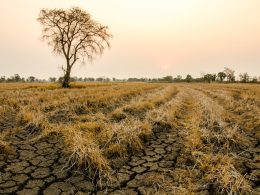In a global first, Heriot-Watt University has launched an online course dedicated to addressing one of the root causes of climate change — the excess of carbon dioxide (CO₂) in the Earth’s atmosphere.
The Carbon Dioxide Removal from a Systems Perspective course, offered through Heriot-Watt Online, is the first university-led programme to focus exclusively on the science, technology, and policy of removing CO₂ from the environment.
Spanning 50 hours, the course is designed for professionals across government, energy, technology, and agroforestry sectors, as well as individuals seeking to transition into climate-focused careers. It explores the science behind the global carbon cycle and examines leading carbon removal technologies such as direct air capture and enhanced rock weathering, while also weighing their economic and social implications.
Dr Mijndert van der Spek, Associate Professor and course lead, said: “We’re incredibly proud to pioneer this course. For years we’ve been advancing carbon dioxide removal technologies, but there’s been little formal education for professionals who want to transition into this vital field. CDR is essential if we’re serious about meeting our climate goals and we need a workforce ready to build an industry even larger than oil and gas.”
The launch comes as Europe’s carbon dioxide removal (CDR) industry is projected to grow into a €220 billion annual market by 2050, creating around 670,000 jobs, according to a 2025 Carbon Gap whitepaper. Developed with input from industry, government and NGOs, the programme aims to equip learners with practical skills to address one of the world’s most urgent climate challenges.
Chris Sherwood, Secretary General of the Brussels-based Negative Emissions Platform, welcomed the initiative, saying: “It’s exciting to see leading universities recognising the importance of carbon dioxide removals and preparing a new generation of climate entrepreneurs.”
The flexible online course is open for enrolment globally and offers discounted access for learners from emerging economies.





















